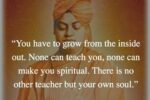WHO ELSE, IF NOT JESUS? (II)
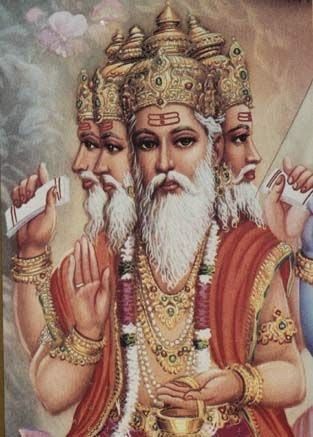
Brahman –the formless, foremost god of Hinduism.
(II)
(Continued from part 1…)
Hindu.
(I got this from a post titled: Part of Hinduism For Dummies Cheat Sheet) Hinduism, it is believed, is not an organized religion and has no single, systematic approach to teaching its value system. Various practices influence the interpretation of beliefs throughout the Hindu world, however, a common thread among all these variations is belief in a Supreme Being and adherence to certain concepts such as Truth, dharma, and karma. The Vedas which serve as their Bible comes with variety of interpretations.
Here are some of the key beliefs shared among Hindus:
*Truth is eternal.
According to the Vedas, Truth is One, but the wise express it in a variety of ways.
Brahman is Truth and Reality.
Hindus believe in Brahman as the one true God who is formless, limitless, all-inclusive, and eternal. Brahman is not an abstract concept; it is a real entity that encompasses everything (seen and unseen) in the universe.
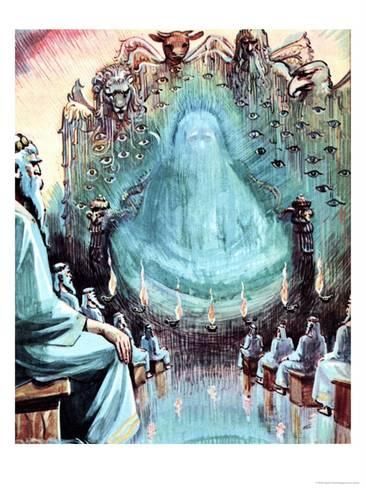
Revelation 5:1 reveals His anthropomorphic dimension
Anyone can, as far as Hinduism is concerned, teach whatever catches his fancy. A formless Brahman is no doubt distanced from his creation. The God of the Bible called on the other two Members of the Trinity to, “Let us make man in our image, after our likeness: and let them have dominion……” in Genesis 1:26, underscoring Jehovah’s anthropomorphism. Jehovah is not without a form. Jesus said to His disciples in John 14:9, “he that hath seen me hath seen the Father; and how sayest thou then, Shew us the Father?” If God is formless the anthropomorphic Johannine couch of Revelation 5:1 will not read, “And I saw in the right hand of him that sat on the throne a book written within and on the backside, sealed with seven seals;” where the word ‘hand’ in Greek, dexios (dex-ee-os’), means: ‘the right side or (feminine) hand (as that which usually takes).’
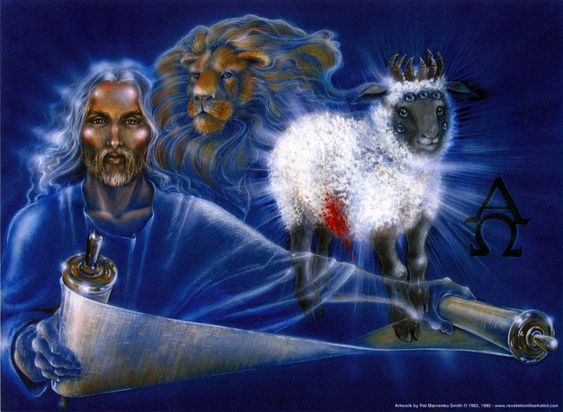
He prevailed [Rev. 5:5]
*The Hindu Vedas are the ultimate authority.
The Vedas are Hindu scriptures that contain revelations received by ancient saints and sages. Hindus believe that the Vedas are without beginning and without end; when everything else in the universe is destroyed (at the end of a cycle of time), the Vedas remain.
*Everyone should strive to achieve dharma.
Dharma can be described as right conduct, righteousness, moral law, and duty. Anyone who makes dharma central to one’s life strives to do the right thing, according to one’s duty and abilities, at all times.
*Individual souls are immortal.
A Hindu believes that the individual soul (atman) is neither created nor destroyed; it has been, it is, and it will be. Actions of the soul while residing in a body require that it reap the consequences of those actions in the next life — the same soul in a different body.
The process of movement of the atman from one body to another is known as transmigration. The kind of body the soul inhabits next is determined by karma (actions accumulated in previous lives).
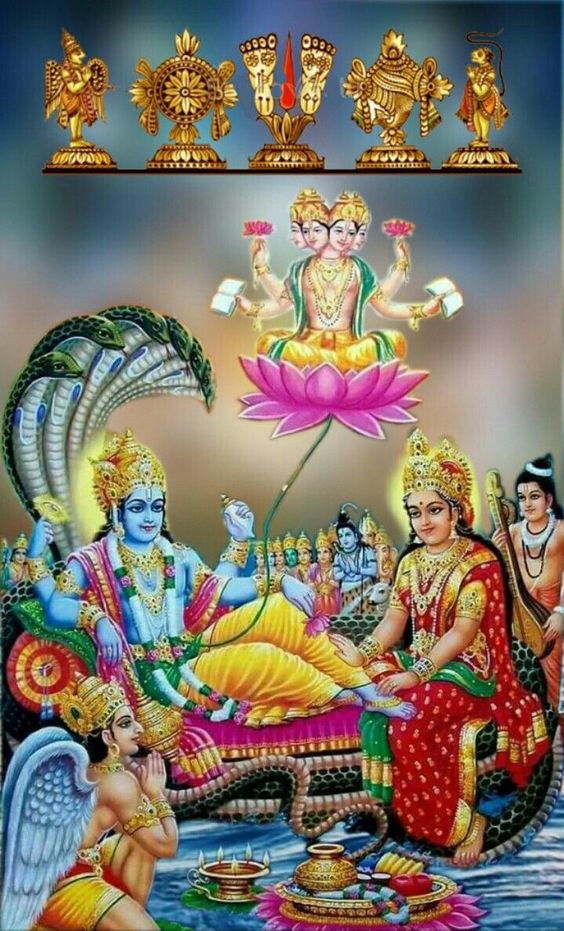
Vishnu & consort, Laksmi; and the four-headed Brahman holding the Vedas
Vedas being eternal is quite understandable to me in that the Logos, the Word of God, Jesus Christ exists before time. He said, “…the words that I speak unto you, they are spirit, and they are life” [John 6:63]. But the Vedas of Hinduism that are opened to as many interpretations as the number of gurus cannot be relied on. Dharma that is not energised by the Spirit of God is of the flesh, profiting nothing.
Who says good works take anyone to heaven? That teacher wallows in dearth of the knowledge of Scripture. He, most definitely, has never come under the prophetic pedagogy of Isaiah. “But we are all as an unclean thing, and all our righteousnesses are as filthy rags; and we all do fade as a leaf; and our iniquities, like the wind, have taken us away.”

Filthy rags of unrighteousness [Isaiah 64:6]
The needle-sharp words of the prophet pierced through the hearts of his Jewish audience who thought the good works of their hands were more than enough to keep their righteous stand before the thrice holy God, in the 6th verse of the 64th chapter of his Book. Many people read this verse without knowing that the Hebrew word for ‘filthy’ is ‛êd (ayd) meaning: ‘menstrual flux.’ If what Hindu religion calls dharma is the saving grace, how blind are they in not seeing that what they are taught by their gurus as righteousness is actually the sanguinary mess of a woman’s cloth of monthly flow? Now, the word ‘thing’ of this verse is not in the Hebrew text, but ‘unclean’ is the Hebrew tame’ (taw-may’): ‘1. foul, defiled. 2. (in a religious or ethical sense) contaminated, desecrated (no longer holy).’ I believe you understand how man’s spiritual putridity accounts for his inability to see things God’s way and why he cannot please the Most High. This is the sole reason why God Himself must, as a mark of responsibility, take it upon Himself to actuate the soteriology. The Bible truly has all the answers. Amen!
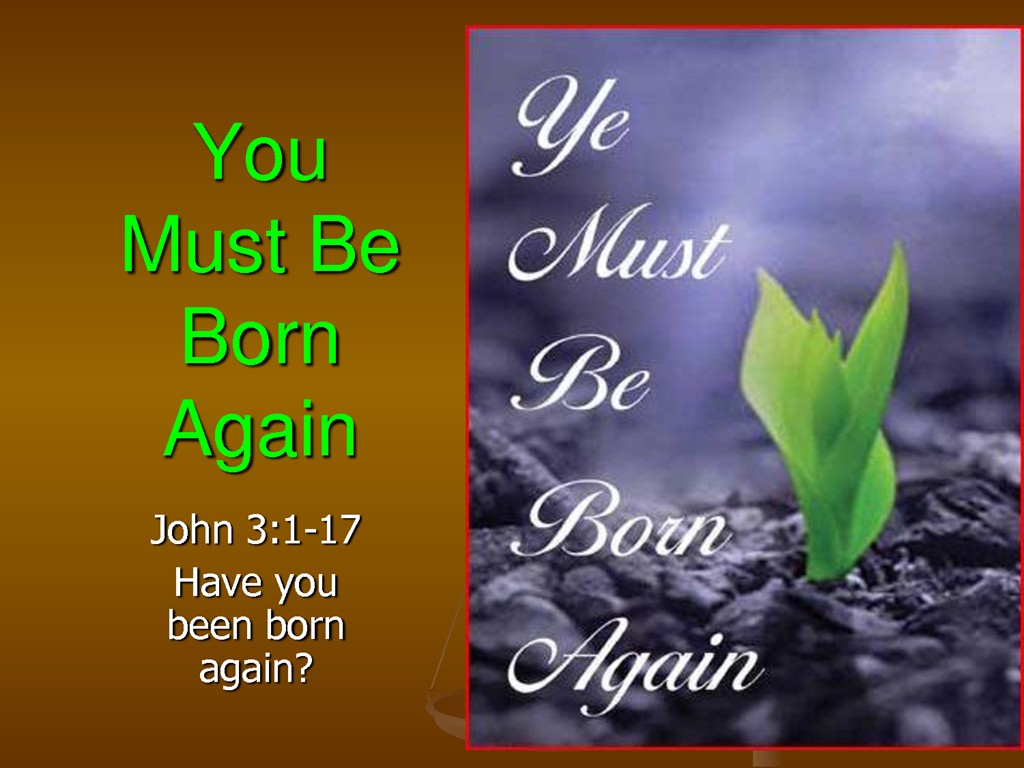
Getting born again is strictly a conscious effort on the part of an individual. It is of a personal conviction that, as the word of God says, Jesus is truly the only Saviour of the world. A soteriological dependence on the finished work of Jesus is the sole belief requirement of Scripture. Get born again by saying this simple prayer.
“Dear heavenly Father, I come to You now in the name of Jesus Christ. I believe in my heart that Jesus is the Son of God. I believe that Jesus died on the cross for my sin. I believe that You raised Him from the dead. I confess with my mouth that Jesus is Lord and I receive Him now as my Lord and my Saviour. I give God all the glory. Amen!”
(…to be continued…)
Get part one here
Part three is here, click
Visits: 251

